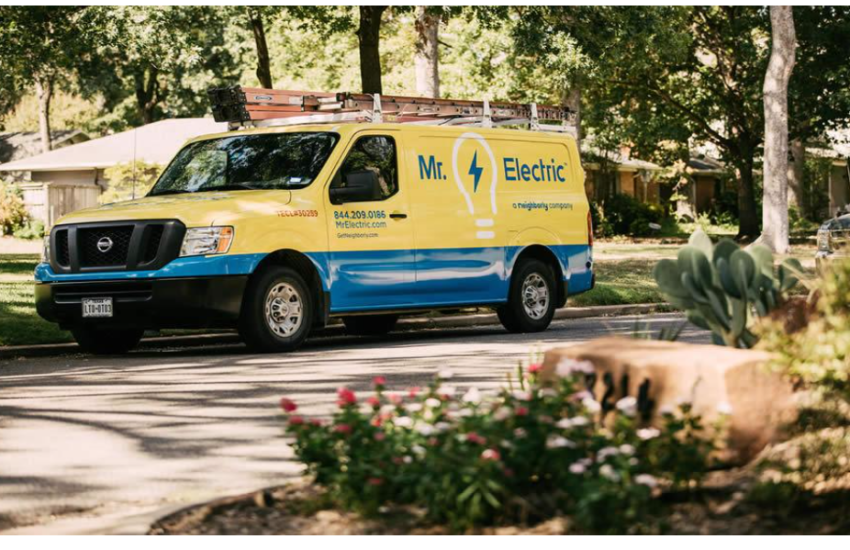Bad Personal Finance Habits That Are Keeping You Broke
We all love the feeling we get when buying groceries on sale or when setting some money aside. Sure, it may not feel as glamorous or rewarding as treating ourselves, but it’s for the better, right? At the end of the month, we should have more money in our bank accounts!
But happens if you don’t? What if, after all these small financial sacrifices, you still feel broke, and every effort seems useless? Sometimes, this feeling may stem from our own financial insecurities, but, many times, the problem is caused by a bad personal finance habit that gives you the illusion of saving money, but in fact, it’s keeping you broke in the long run.
Here are some of these habits that undermine your financial stability without you realizing it:
You’re spending more than you can afford on car payments
For most families, having a car is non-negotiable. You need a personal vehicle to get to work, go grocery shopping, and drive your kids to school. However, the way you choose to finance your car can have a lasting impact on your wealth. For years, personal finance experts have been warning people that monthly car payments are the main reason why they’re not building wealth.
A new car may be reliable, but you’ll be paying around $600 every month, and for a middle-class family, this isn’t unnoticeable. Even though it feels like a bigger effort, set some money aside every month to buy a used car with good mileage. You won’t have to struggle with the stress of monthly car payments afterward and all that money you would have given to the bank can go into your savings account or your child’s college fund.
You don’t have a budget plan because you think you don’t make enough money
After you pay the bills and cover all the monthly expenses, you barely have any money left, so what’s the point of budget planning anyway?
But there is. One of the things that people tend to forget is that you can never be too poor for budget planning and you will never get rich without one either. Budgeting creates organization and discipline, and here’s why this is important. At one point, you’ll get a pay raise or a better job, and money will no longer be tight. If you don’t have a budget now, you won’t have one then, and you’ll start to waste money without realizing it. Because you’ll be used to not having any income leftover, you’ll waste the remaining difference on impulse buys and the extra income won’t turn to wealth.
You don’t invest
Similarly to budgeting, saving isn’t a habit reserved for rich people. Everyone can (and should!) invest, even if you’re only putting in $15/month. Don’t feel embarrassed for not being able to invest more, because investments are made for long periods. You may not have a lot now, but in 30 years, you will. There are many safe ways to invest that don’t involve risking your money to volatile funds – high yield savings accounts, private retirement funds, ETFs, corporate bonds. These are low-risk, high-return options that multiply your savings after retirement so that you can enjoy financial stability.
You cut costs on the things that matter
Constantly looking to pay less on things can be a great habit and it can save you money. Did you buy a pair of regular headphones instead of Earpods? Great. But there’s a catch. Sometimes, you’re too poor to afford cheap things. It sounds like a paradox, but it makes sense if you think about it. When you buy something cheap, it might cost you more in the long run. Treating your cough with chamomile tea isn’t saving if it worsens your condition and you’ll pay more on hospital bills next month. That pair of cheap winter boots won’t save you money if it breaks after one week and then you have to buy a new one. Living off on fast-food may lower your costs now, but it will come back like a boomerang in a few years. Some things really are worth the cost, so if you’ve been feeling bad, go to the doctor now instead of waiting. If your roof is damaged, it makes more sense to consider bad credit loans and repair it, than ignore it until it’s beyond repairs and you have to replace it.
You’re a victim of marketing
Huge corporations know exactly the needs and wants of consumers and what marketing tactics to use to get us to buy their products. But when their marketing prevents you from saving money or from keeping the money you saved all year round, you have a problem. Us parents, for example, tend to believe that our kids will hate us if we don’t take them to Disneyland for their birthday or if we don’t buy them iPhones for Christmas. But, if you explain to them why this isn’t a good idea and you give them something equally valuable instead, they’ll thank you when they become adults. If you struggle to save money for months only to spend all that money in one weekend at Disneyland, you’re not becoming any wealthier. Also, that iPhone doesn’t make you rich, it just gives you the illusion of being rich.
Don’t buy that $300 bag to have nothing in it, buy that $20 bag and have $280 in it. So, instead of falling victim to marketing and giving your savings to corporations, think that you can have the exact same thing for a fraction of cost. If your son wants to go to Disneyland and it doesn’t make financial sense, don’t go. Take him for a picnic, go to the movies, buy him a toy and bake him a cake – it costs much less, and he’ll love it too.
You buy on sale compulsively
Buying on sale is one of those healthy personal finance habits that can make you broke when taken to the extreme. You should only buy on sale the things you need. Many times, seeing that
red label gives you the illusion of saving, and, for fear that you might miss a great bargain, you end up buying large quantities of things you don’t need, you wouldn’t have bought otherwise, and that may go bad.
Don’t buy that casserole of seedless grapes just because it’s on sale. Don’t buy 3 for 2 just because the store has that offer running, and don’t overstock on food that will go bad before you can eat it. Stick to your list, compare prices, and you’ll notice the difference in your account balance.


